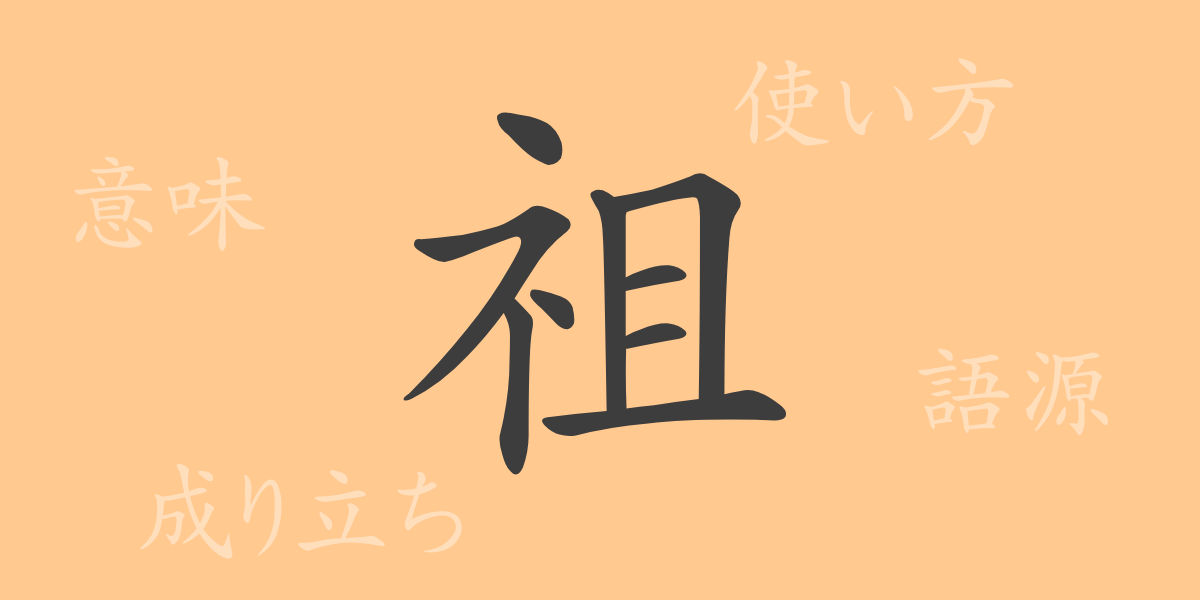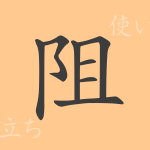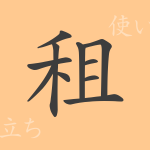The journey into the history and meaning embedded in a single Kanji character is a first step towards a deep understanding of Japanese culture. This time, we focus on the commonly used Kanji “祖” (そ), unraveling everything from its etymology to its contemporary usage. We will explore the expressive power of this seemingly simple character and how it integrates into our language.
Origins of 祖 (そ)
The Kanji “祖” (そ) has been used since ancient times, evolving from a pictograph that represented an altar used in rituals. In ancient China, rituals to worship ancestors were fundamental to society, and this character played a crucial role in conveying respect and memory for ancestors. Over time, it has also come to encompass meanings like “origin” and “founder”, being used to express broader concepts.
Meaning and Usage of 祖 (そ)
In modern Japanese, “祖” (そ) mainly refers to “ancestors” or “forebears”, and is used in contexts relating to lineage, genealogy, or origins. It is also widely used in terms like “homeland” (祖国/ソコク), “grandfather” (祖父/ソフ), and “grandmother” (祖母/ソボ), representing the root or source of something. This character is indispensable in discussing family lineage, cultural heritage, and national history.
Readings, Stroke Count, and Radical of 祖 (ソ)
The Kanji “祖” (ソ) is beloved for its form and meaning. Here are its specifics:
- Readings: The on’yomi (Sino-Japanese reading) is “ソ” (ソ), and there is no specific kun’yomi (native Japanese reading).
- Stroke Count: “祖” (ソ) is composed of 9 strokes.
- Radical: The radical is 示 (シメスヘン).
Phrases, Idioms, and Proverbs Involving 祖 (ソ) and Their Meanings
There are several phrases and idioms involving “祖” (ソ), such as:
- 祖父母 (ソフボ): Refers to one’s grandparents, either paternal or maternal.
- 祖国 (ソコク): The country where one was born and raised, or a term expressing attachment to that country.
- 開祖 (カイソ): The founder of a school, religion, or organization.
- 元祖 (ガンソ): The original person or thing that started something.
- 祖述 (ソジュツ): The act of recounting the words and deeds of one’s predecessors.
These phrases and idioms are commonly used in everyday life, conveying shared historical and cultural values among people.
Summary on 祖 (ソ)
The Kanji “祖” (ソ) is deeply rooted in many words that surround us. It represents respect for ancestors while also indicating the origins of our culture and traditions. This character plays a significant role in Japanese language, and through this exploration, we have had the opportunity to reappreciate the depth of meaning in a single character and the power of words. As a common Kanji, “祖” (ソ) will continue to be passed down through our language into the future.

























